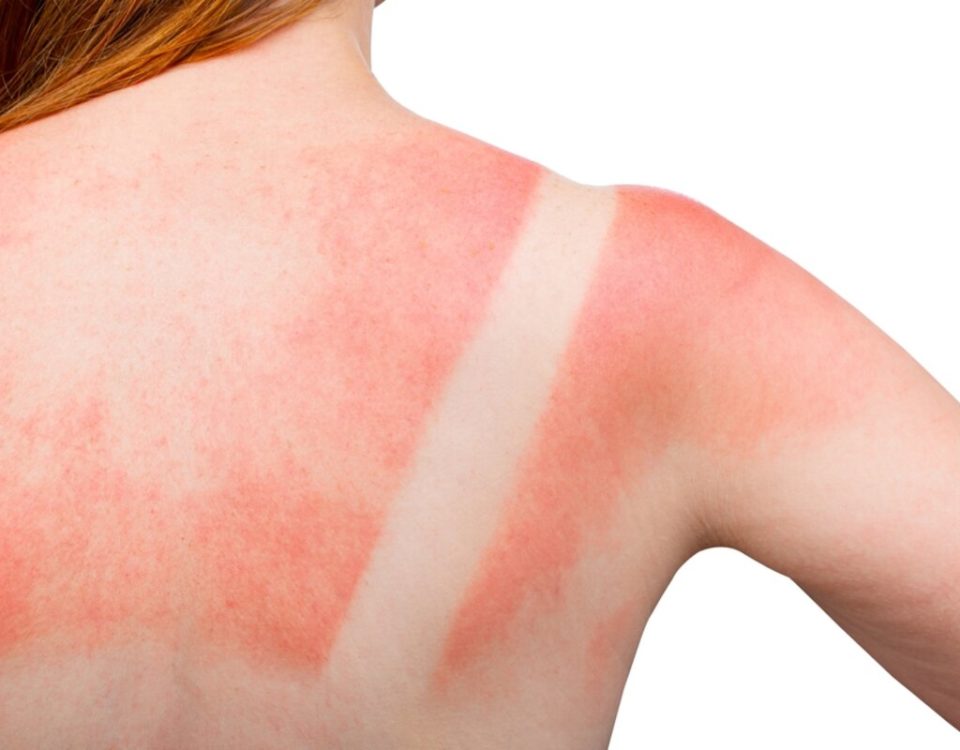
Is Sugar Aging Your Face? Here’s How to Tell
September 8, 2021
Understanding Vitamin Deficiency and Its Impact
October 7, 2021Did you know that there are seven different skin types? While all skin types benefit from cleansing and moisturizing, it’s important to know what kind of skin you have so that you can take care of it and allow it to thrive. Throughout the years, different cosmetic products have changed to cater to various skin types. Even as we age, our skin can change textures and types, requiring different care.
Discovering what type of skin you have requires learning about the characteristics of each type and performing simple tests and observations. Are you ready to discover which skin type you have? Keep reading to find out!
Normal
A lucky few people have normal skin. Normal skin is well-balanced, meaning it is not dry or oily. In addition, this skin type is not prone to acne breakouts, tightness, greasiness, or flakiness. The texture of normal skin is smooth, and most products do not irritate it. Since pores are small, the skin is less prone to blemishes.
How to Tell if You Have Normal Skin
You probably have normal skin if you rarely get pimples, zits, or blackheads. Changing weather doesn’t impact your skin’s moisture, and new products don’t irritate your skin. The texture of your skin is firm, with minimal fine lines and wrinkles. If you don’t need to moisturize or blot away oil on your face frequently, you most likely have a normal skin type.
Oily
Oily skin appears shiny and feels greasy because the skin produces an excess amount of sebum, which is an oily, waxy substance produced by your body’s sebaceous glands. Sebum exists to coat, moisturize, and protect the skin, but too much of it causes persistent oiliness.
Typically, oily skin is localized throughout the T-Zone, which is composed of the forehead, nose, and chin. Oily skin is more likely to have enlarged pores, resulting in acne breakouts.
How to Tell if You Have Oily Skin
If you have oily skin, your skin always looks shiny or glowing. Some other good indicators of this skin type are:
- Makeup products don’t stay put
- Blotting sheets soak up moisture
- Dark spots remain on the skin after acne breakouts
A perk of oily skin is that the skin looks younger, more supple, and is less prone to wrinkles.

Dry
Dry skin is caused by a lack of oil in the skin. This skin type typically looks dull, not shiny. The texture of this skin type is rough, flaky, or sometimes scaly. It feels tight and often gets itchy or irritated. Since there is less elasticity in dry skin, it usually shows more visible lines.
How to Tell if You Have Dry Skin
Often, dry skin gets set off by changing weather. Winter weather, in particular, can cause painful, dry skin for people with this skin type. If you need to constantly moisturize your skin to gain some relief, you likely have dry skin.
If your dry skin is accompanied by itchiness, burning, or other discomforts, you should schedule an appointment with a dermatologist. You may have eczema or another related skin condition that certain medications can help soothe. Be sure to drink plenty of water to keep your skin hydrated.
Combination
Combination skin can sometimes be harder to pinpoint because it has features of both dry and oily skin. In this skin type, the T-Zone typically remains oily, and the cheeks are dry. It can be difficult for people with this skin type to find moisturizers that aren’t too heavy but still retain moisture. Combination skin is prone to breakouts on the cheeks.
How to Tell if You Have Combination Skin
If you don’t match the normal, dry, or oily skin profiles, you may have combination skin. If your skin is dry in certain areas but oily in others, that’s a good indicator of combination skin. To care for combination skin, you will need to balance treatment for both oily and dry skin.
Acne-Prone
Acne-prone skin is a skin type that is susceptible to frequent breakouts. The pores clog easily, causing whiteheads, blackheads, or pimples. Oily and dry skin types can also be acne-prone.
How to Tell if You Have Acne-Prone Skin
If it seems like there is always at least one pimple on your face, you might be acne-prone. People with acne-prone skin can rarely catch a break from annoying or even painful blemishes. If this seems to be your case, you can visit a dermatologist who can prescribe medications to help bring about relief.
Sensitive
Environmental factors, allergies, or genetics are all things that cause sensitive skin. Sensitive skin often reacts poorly to new skincare products and cosmetics. In fact, some products may spark an allergic reaction that causes irritated skin to spread across the face.
How to Tell if You Have Sensitive Skin
Sensitive skin has a handful of indicators, including:
- Frequent rashes and bumps
- Stinging or burning after using a skincare product
- Patches of dry, irritated, or flaky skin
- Adverse reactions to fragrance or products with fragrance
People with this skin type should use products with fewer additives, no fragrances, and anti-inflammatory properties. For sensitive skin, less is more. Avoid trying out numerous products as it may worsen your situation. Stick with a gentle cleanser and moisturizer each day.
Mature
Eventually, wrinkles will form on your skin even if you take preventative measures against wrinkles in your younger years. Not everyone’s skin ages at the same pace, but everyone’s skin eventually matures. Mature skin typically features sagging, dark spots, dullness, and dehydration.
How to Tell if You Have Mature Skin
Even if you wear sunscreen every day and use anti-aging skincare products, your skin will mature eventually. If you notice that your skin feels less firm, dark spots appear after spending time in the sun, and you have fine lines and wrinkles, your skin has probably matured. Mature skin requires special products and routines to keep it looking young and healthy.
Treat Your Skin With Special Attention
Each skin type requires a different skincare routine to keep it healthy. Whether you have normal, oily, dry, or combination skin, take time to learn what products are suitable for your skin. If you have acne-prone or sensitive skin, you can seek help from a dermatologist. For any skin type, be sure to wear an appropriate sunscreen each day, drink lots of water, and get enough sleep. Healthy skin makes for a healthy life!
New Clients:
$35 deposit for all new clients
Cancellation/No Show Policy:
$35 fee for all no show, no call and any cancellations less than 24hrs before the start of your appointment.Any prepaid services will be forfeited.
Call us at +1(651)222-4490
Email us at SpaConsultantsMD@gmail.com
or, Schedule a free consultation
We are located on the main level inside of the Blair Arcade Building. We validate parking in the lot connected to the building off of Selby. Be sure to bring your ticket in with you!
Business Hours:
Monday: 9:00am - 8:00pm
Tuesday: 9:00am - 5:00pm
Wednesday: 9:00am - 8:00pm
Thursday: 9:00am - 8:00pm
Friday: 10:00am - 5:00pm
Saturday: 9:00am - 2:00pm (3 Saturdays per month- please call or email for more information)




